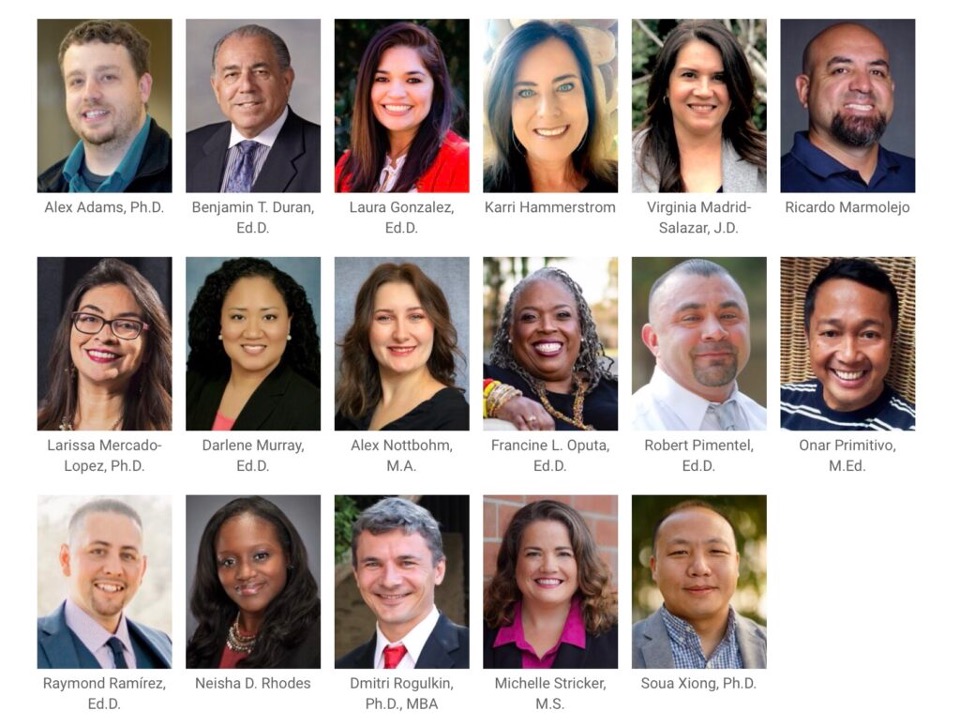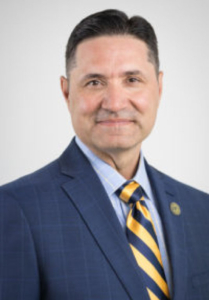CVHEC Equity, Race and Social Justice Taskforce established

The Central Valley Higher Education Consortium has launched its Equity, Race, and Social Justice Taskforce which includes a three-pronged strategy to assess and recommend action for its member institutions – 29 colleges in a nine-county region.
Findings and recommendations will be presented as part of the CVHEC Higher Education Fall 2021 Summit Series that is now being planned, said Dr. Benjamin T. Duran, CVHEC executive director, in announcing the roster and the need.
“The Equity, Race and Social Justice Taskforce was convened in response to the social unrest of the summer 2020 and the impacts of the pandemic,” Duran said. “For too many students, the pandemic exacerbated already existing problems. The taskforce is seeking to rebuild and improve higher education outcomes for the Central Valley region.”
CVHEC is mission-focused on improving certificate and degree completion rates for students and the Equity, Race and Social Justice Taskforce will strengthen that mission.
An intersegmental undertaking, the 17-member task force consists of representation from Clovis Community College; Fresno City College; Reedley College; Fresno Pacific University; Fresno State; California State University, Stanislaus; University of California Merced; Foundation of California Community Colleges (Guided Pathways); and K-16 Collaborative. Members also represent faculty, equity and institutional research leaders.
The taskforce includes three workgroups: the Regional Scan Workgroup, the Equitable Recovery Workgroup and the Framework and Integration Workgroup.
“Integral to this work will be a collection of pertinent data to drive the findings,” Duran said.
As the regional convener, CVHEC convenes and manages the work of the taskforce and has tasked its strategies lead, Virginia Madrid-Salazar, to serve as its chair.
The charge of the three subgroups:
- The Regional Scan Workgroup will identify best practices and barriers currently occurring in the Central Valley around equity, race and social justice in higher education. An expected outcome of this workgroup is to design and implement a regional scan tool (i.e., survey) for the region.
- The Framework and Integration Workgroup will develop the Central Valley Equity Statement and Operational Definition of Equity in Higher Education and the pursuit of a regional framework for addressing equity, racial and social justice.
- The Equitable Recovery Workgroup will explore the question, “Which students were pushed out during the pandemic and how do we bring them back?” This effort will focus on equity and equitable outcomes for Central Valley students and the implementation of new policies and practices for this purpose. An expected outcome will be to collect and disaggregate regional data to highlight current gaps and needs in our combined systems.
“Taskforce members represent the Central Valley’s expertise in education leadership and have spent a considerable number of years in leading equitable change in the Central Valley,” said Virginia Madrid-Salazar. “They bring thoughtful consideration to the issues facing Central Valley students as a result of the pandemic. They are committed to Central Valley students.”
The CVHEC Equity, Race and Social Justice Taskforce members include:
Alex Adams, Ph.D.
Director – Institutional Research, Planning, and Effectiveness
Clovis Community College
Equitable Recovery Workgroup / Regional Scan Workgroup
Benjamin T. Duran, Ed.D.
Executive Director
Central Valley Higher Education Consortium
Framework and Integration Workgroup Lead
Laura Gonzalez, Ed.D.
Assistant Professor, School of Education
Liberal Arts Program Director
Fresno Pacific University
Equitable Recovery Workgroup
Karri Hammerstrom
Executive Director
The Fresno K-16 Collaborative
Regional Scan Workgroup
Virginia Madrid-Salazar, J.D.
Strategies Lead
Central Valley Higher Education Consortium
Taskforce Chair / Co-Lead Equitable Recovery Workgroup
Ricardo Marmolejo
Guided Pathways Regional Coordinator
California Community Colleges Foundation
Regional Scan Workgroup
Larissa Mercado-Lopez, Ph.D.
Associate Professor, Dept. of Women’s, Gender & Sexuality Studies
Fresno State
Equitable Recovery Workgroup
Darlene Murray, Ed.D.
Student Equity Coordinator
Reedley College
Regional Scan Workgroup
Alex Nottbohm, M.A.
Research and Data Analyst – Office of Institutional Effectiveness
Fresno State
Equitable Recovery Workgroup
Francine L. Oputa, Ed.D.
Diversity, Equity and Inclusion Consultant
Director (retired) – Cross Cultural and Gender Center (Fresno State)
Framework and Integration Workgroup
Robert Pimentel, Ed.D.
Vice President, Educational Services & Institutional Effectiveness
Fresno City College
Regional Scan Workgroup
Onar Primitivo, M.Ed.
Executive Director, Equity & Justice – Office of Equity, Diversity & Inclusion
University of California Merced
Framework and Integration Workgroup
Raymond Ramírez, Ed.D.
Director, Student Equity and Success, Educational Services and Institutional Effectiveness
Fresno City College
Lead – Regional Scan Workgroup
Neisha D. Rhodes
Director for Presidential Initiatives
California State University, Stanislaus
Framework and Integration Workgroup
Dmitri Rogulkin, Ph.D., M.B.A.
Executive Director, Research and Institutional Effectiveness
State Center Community College District
Equitable RecoveryWorkgroup
Michelle Stricker, M.S.
Guided Pathways Lead Regional Coordinator, Central/Far South
California Community Colleges Foundation
Co-Lead Equitable Recovery Workgroup
Soua Xiong, Ph.D.
Assistant Professor, Department of Counselor Education and Rehabilitation
Coordinator, Student Affairs & College Counseling
Fresno State
Regional Scan Workgroup














